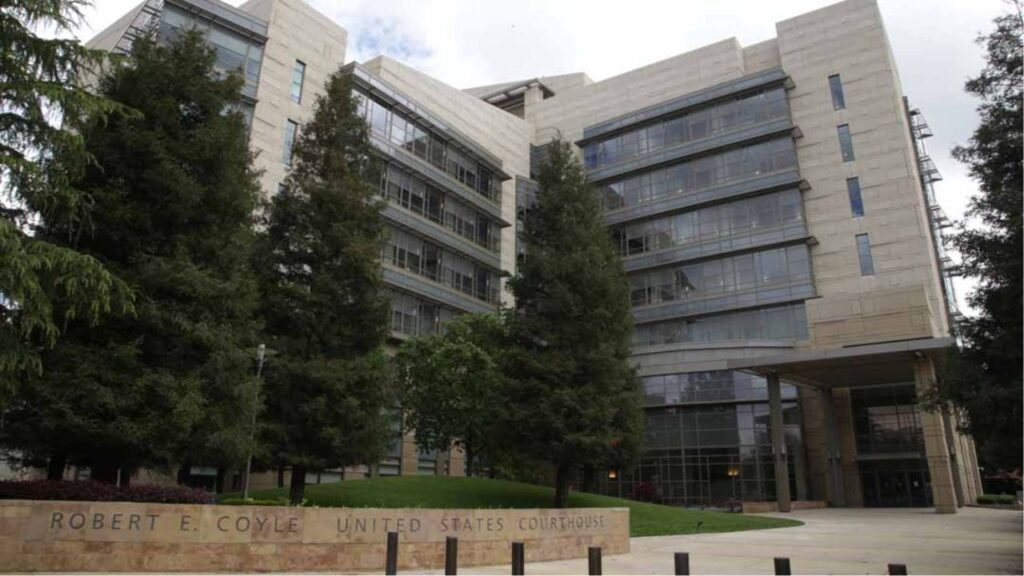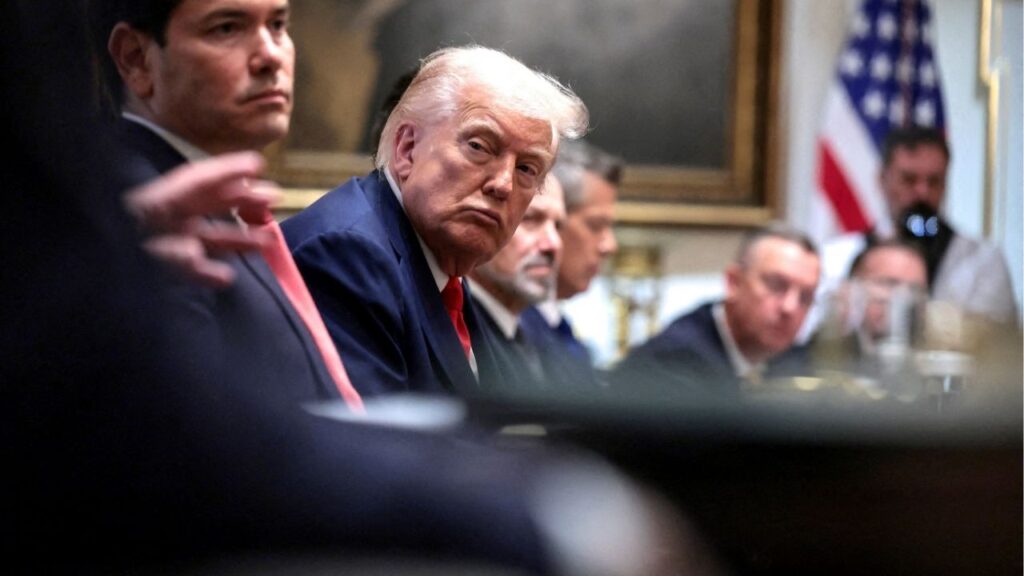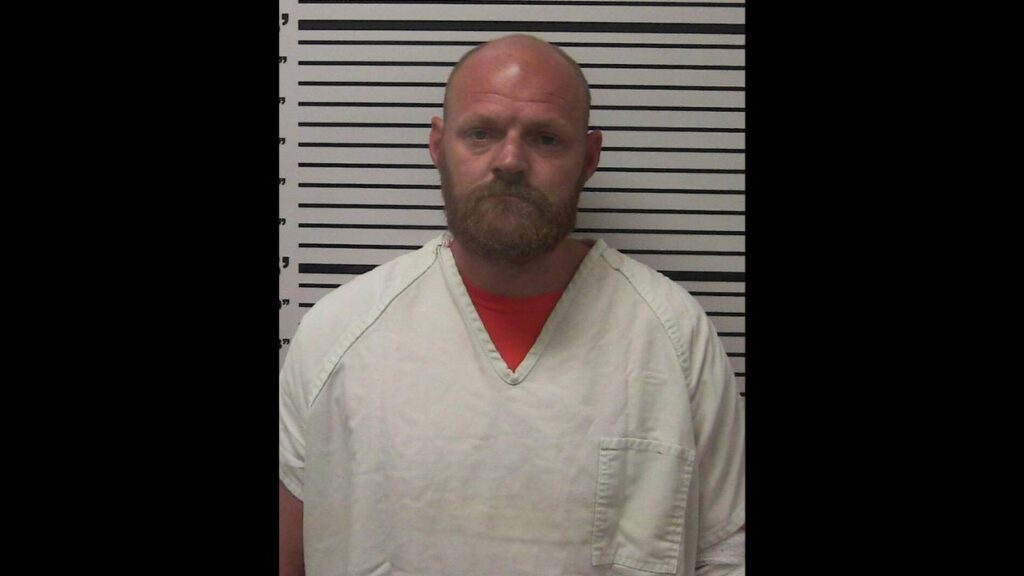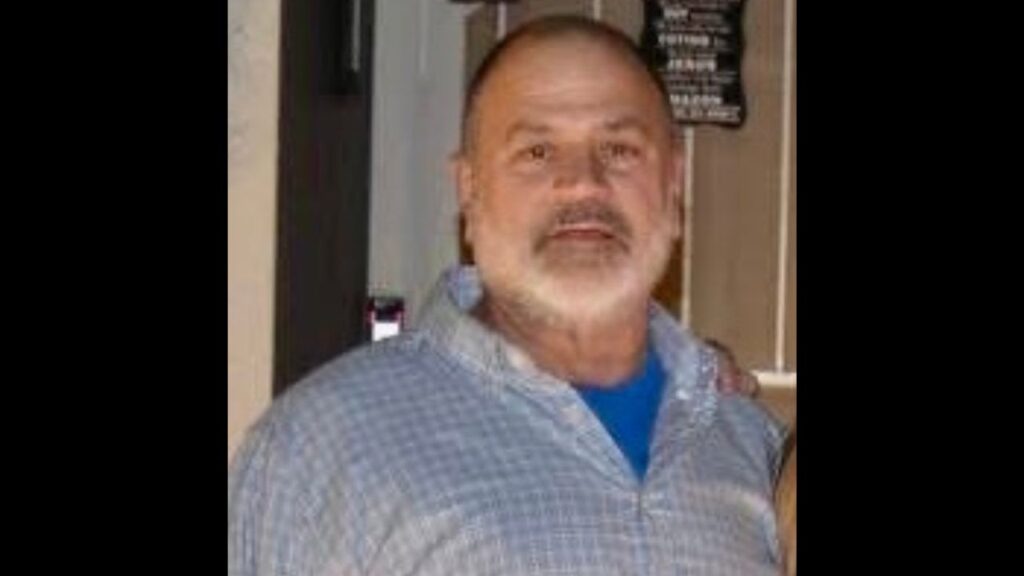Jennifer Stefania Vasquez Sura, second from right, during a demonstration in support of her husband, Kilmar Armando Abrego Garcia, in Greenbelt, Md., April 4, 2025. The Supreme Court on Thursday, April 10, 2025, instructed the government to take steps to return Garcia, a Salvadoran migrant it had wrongly deported to a notorious prison in El Salvador. (Rod Lamkey Jr./The New York Times)

- Supreme Court orders U.S. to help return wrongly deported Salvadoran man but avoids forcing executive action outright.
- Justice Sotomayor blasts government for unlawful deportation, saying no legal basis existed for arrest or foreign imprisonment.
- Trial judge previously ruled Trump administration's deportation of Abrego Garcia “shocks the conscience” and lacked credible evidence.
Share
|
Getting your Trinity Audio player ready...
|
WASHINGTON — The Supreme Court on Thursday instructed the government to take steps to return a Salvadoran migrant it had wrongly deported to a notorious prison in El Salvador.
In an unsigned order, the court stopped short of ordering the return of the migrant, Kilmar Armando Abrego Garcia, indicating that courts may not have the power to require the executive branch to do so.
But the court endorsed part of a trial judge’s order that had required the government to “facilitate and effectuate the return” of Abrego Garcia.
“The order properly requires the government to ‘facilitate’ Abrego Garcia’s release from custody in El Salvador and to ensure that his case is handled as it would have been had he not been improperly sent to El Salvador,” the Supreme Court’s ruling said. “The intended scope of the term ‘effectuate’ in the district court’s order is, however, unclear, and may exceed the district court’s authority.”
Case Will Return to Trial Court
The case will now return to the trial court, and it is not clear whether and when Abrego Garcia will be returned to the United States.
“The district court should clarify its directive, with due regard for the deference owed to the executive branch in the conduct of foreign affairs,” the Supreme Court’s ruling said. “For its part, the government should be prepared to share what it can concerning the steps it has taken and the prospect of further steps.”
The ruling appeared to be unanimous. But Justice Sonia Sotomayor, joined by Justices Elena Kagan and Ketanji Brown Jackson, issued a statement that was harshly critical of the government’s conduct and said she would have upheld every part of the trial judge’s order.
“To this day,” Sotomayor wrote, “the government has cited no basis in law for Abrego Garcia’s warrantless arrest, his removal to El Salvador or his confinement in a Salvadoran prison. Nor could it.”
Sotomayor urged the trial judge, Paula Xinis of the U.S. District Court in Maryland, to “continue to ensure that the government lives up to its obligations to follow the law.”
A Justice Department spokesperson responded to the order by focusing on its reference to the executive branch.
“As the Supreme Court correctly recognized, it is the exclusive prerogative of the president to conduct foreign affairs,” the spokesperson said. “By directly noting the deference owed to the executive branch, this ruling once again illustrates that activist judges do not have the jurisdiction to seize control of the president’s authority to conduct foreign policy.”
Andrew J. Rossman, one of Abrego Garcia’s lawyers, expressed satisfaction with the Supreme Court’s action.
“The rule of law won today,” he said. “Time to bring him home.”
Abrego Garcia’s wife described the effect the case has had on their family and said she would keep pursuing his return to the United States.
“This continues to be an emotional roller coaster for my children, Kilmar’s mother, his brother and siblings,” Jennifer Stefania Vasquez Sura, his wife, said Thursday, adding that “I will continue fighting until my husband is home.”
Trial Judge Said Trump Administration Committed ‘Grievous Error’
Xinis had said the Trump administration committed a “grievous error” that “shocks the conscience” by sending Abrego Garcia to El Salvador despite a 2019 ruling from an immigration judge. The immigration judge granted him a special status known as “withholding from removal,” finding that he might face violence or torture if sent to El Salvador.
The administration contends that Abrego Garcia, 29, is a member of a violent transnational street gang, MS-13, which officials recently designated as a terrorist organization.
Xinis, who was appointed by President Barack Obama, said those claims were based on “a singular unsubstantiated allegation.”
“The ‘evidence’ against Abrego Garcia consisted of nothing more than his Chicago Bulls hat and hoodie,” she wrote, “and a vague, uncorroborated allegation from a confidential informant claiming he belonged to MS-13’s ‘Western’ clique in New York — a place he has never lived.”
In the administration’s emergency application seeking to block Xinis’ order, D. John Sauer, the U.S. solicitor general, said she had exceeded her authority by engaging in “district-court diplomacy,” because it would require working with the government of El Salvador to secure Abrego Garcia’s release.
“If this precedent stands,” he wrote, “other district courts could order the United States to successfully negotiate the return of other removed aliens anywhere in the world by close of business,” he wrote. “Under that logic, district courts would effectively have extraterritorial jurisdiction over the United States’ diplomatic relations with the whole world.”
In a response to the court, Abrego Garcia’s lawyers said their client “sits in a foreign prison solely at the behest of the United States, as the product of a Kafka-esque mistake.”
They added: “The district court’s order instructing the government to facilitate Abrego Garcia’s return is routine. It does not implicate foreign policy or even domestic immigration policy in any case.”
Sauer said it did not matter that an immigration judge had previously prohibited Abrego Garcia’s deportation to El Salvador.
“While the United States concedes that removal to El Salvador was an administrative error,” Sauer wrote, “that does not license district courts to seize control over foreign relations, treat the executive branch as a subordinate diplomat and demand that the United States let a member of a foreign terrorist organization into America tonight.”
Abrego Garcia’s lawyers said there was no evidence that he posed a risk.
“Abrego Garcia has lived freely in the United States for years, yet has never been charged for a crime,” they wrote. “The government’s contention that he has suddenly morphed into a dangerous threat to the republic is not credible.”
—
This article originally appeared in The New York Times.
By Adam Liptak/Rod Lamkey
c. 2025 The New York Times Company



















